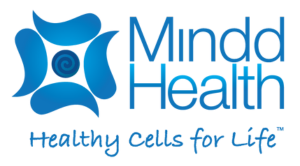25% of American 13 to 18-year-olds suffer from anxiety and in Australia, a study from 2008 showed that 15.4% of 16 to 24 years olds had experienced an anxiety disorder in the previous 12 months.
Could nutrition have anything to do with this?
Healthy nutrition is, of course, the key to a healthy mind. There are several specific nutrient deficiencies associated with anxiety; the most important are Magnesium and Omega 3.
Plenty of whole foods contain enough magnesium to cover your daily needs:
They should be a daily part of a healthy diet.
Signs and symptoms of low magnesium include muscle cramps, muscle tics, constipation, nightmares, and anxiety.
Children love taking baths – the warm water has a calming effect and increases endorphin production. If you add a cup of Epsom salts (magnesium sulphate) to the water, they will have the added benefit of absorbing the magnesium salts through their skin, which will calm them down and help them sleep.
Flax and linseeds contain alpha-linolenic acid, a precursor to DHA and EPA. Some humans are better than others at converting alpha-linolenic acid into DHA and EPA – but it is hard to know who does it well and who does not. You can get a blood test done to check levels of these essential fatty acids, but it is invasive, painful and expensive. So why not just take algae oil as a safe option?
Anxious teenagers should review their diet and cut out any caffeinated sodas, tea and coffee. Caffeine can also destabilize children's blood sugar by dropping it too low, which causes anxiety and stress.
Anxiety also happens when you eat a diet high on the glycaemic index. High glycaemic foods like sugar, white bread, rice and potato, raise the blood sugar level quickly. The body produces insulin to push the sugar into the cells where the sugar is converted into energy. Often the insulin will push the blood sugar level too low resulting in hypoglycaemia – with symptoms of feeling weak, anxious, followed by the release of the stress hormone adrenaline.
If your child eats lots of sugary foods and processed "white" grains, you can help by replacing these with unprocessed whole grains, such as brown rice, wholemeal bread, and sweet potato. These foods are low on the glycaemic index, raise the blood sugar level slowly, and keep it even, allowing for a calm mood and sustained attention.
 Stay connected and keep up to date with the latest in Functional Medicine
© 2025 | mindd.org | All rights reserved
Stay connected and keep up to date with the latest in Functional Medicine
© 2025 | mindd.org | All rights reserved

